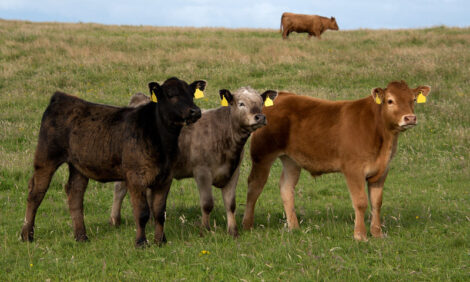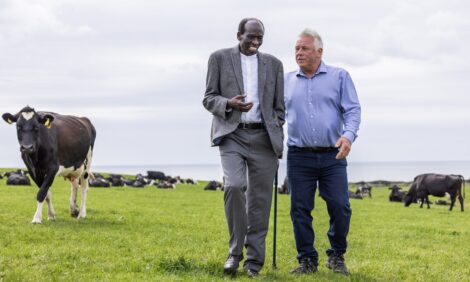



Eating Less Beef Might Not Lower Brazilian Emissions
BRAZIL - Reduced meat consumption might not lower greenhouse gas emissions from one of the world’s biggest beef producing regions, new research has found.The results add further fuel to the debate about this issue, after research published in December found that some vegetables use more of the planet's resources per calorie than some meats.
The finding may seem incongruous, as agriculture is responsible for such a large proportion of global greenhouse gas emissions, but the study's conclusions depend on how farmers change land use in response to meat demand.
According to research by University of Edinburgh, Scotland’s Rural College (SRUC) and Brazilian Agricultural Research Corporation (Embrapa), reducing beef production in the Brazilian Cerrado could actually increase global greenhouse gas emissions. The findings were published this week in the journal Nature Climate Change.
Lead author Rafael Silva, of the University of Edinburgh’s School of Mathematics, explained: “Much of Brazil’s grassland is in poor condition, leading to low beef productivity and high greenhouse gas emissions from cattle.
"However, increasing demand for meat provides an incentive for farmers to recover degraded pastures. This would boost the amount of carbon stored in the soil and increase cattle productivity. It would require less land for grazing and reduce deforestation, potentially lowering emissions.”
Using grasslands to store carbon
While grasslands are not as effective as forests at storing carbon, Brazilian grass – mostly Brachiaria genus – has a greater capacity to do so than grass found in Europe, due to its long roots.
High quality grasslands will cause more carbon to be stored in the soil, which will lead to a decrease in CO2 emissions. Grassland improvement involves chemical and mechanical treatment of the soil, and use of better adapted seeds along with calcium, limestone and nitrogen fertilisers. Most Brazilian grassland soils are acidic, requiring little nitrogen.
In the case of the Brazilian Cerrado, reduced meat consumption could remove the incentive for grassland improvement and therefore lead to higher emissions.
The researchers worked out that if demand for beef is 30 per cent higher by 2030 compared with current estimates, net emissions would decrease by 10 per cent.
Reducing demand by 30 per cent would lead to 9 per cent higher emissions, provided the deforestation rates are not altered by a higher demand. However, if deforestation rates increase along with demand, emissions could increase by as much as 60 per cent.
Professor Dominic Moran, of SRUC's Land Economy, Environment and Society Group, said: “The message of our research is to beware of unintended consequences.
"In some production regions, shifting to less meat-dependent diets would help curb climate change, but it is important to understand the nature of different production systems before concluding that reduced consumption will have the same effects in all systems.”
TheCattleSite News Desk


